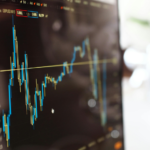Trading psychology is one of the most significant factors determining success vs. failure in forex trading. Intense emotional states such as fear, panic, and greed can overpower any trading strategy and determine the outcome of your trades. Learning how to command your emotional states through the ups and downs of forex trading could prove to be one of the most impactful skills you’ll add to your armory.
Emotions Affect Even The Most Experienced Traders
Trading has many components that you can improve over the years: fundamental and technical analysis, market review, financial modeling, and more. While experience and polished skills can significantly improve your winning percentage, some factors act as equalizers for traders of all experience levels. The number one factor? Emotions.
People share the same emotions and reactions, almost eliminating any other skill they might have acquired through the years. Here are how specific emotions can affect trading actions:
Anger – this might be the most common scenario amongst traders. Anger over a failed trade could fuel a non-stop spiral of opening new positions in an attempt to regain what was lost.
Fear – more common amongst beginner traders, fear is the driving force behind many sudden, unfiltered decisions. The market has many ups and downs, and the fear of losing capital could lead many traders into closing positions or liquidating their funds.
Ego – most emotions apply to both novice and experienced traders, but this might be more common amongst more experienced traders. Coming up with a theory, a strategy, and a game plan that ultimately fails can sometimes hurt someone’s ego. In an attempt to prove they were right in the first place, they might try the same method repeatedly.
Greed – success is a powerful and sometimes dangerous emotion. The feeling of winning a trade might create the illusion that any trade that follows will pan out the exact same way. That could lead to investing more funds and opening more positions than you would typically do.
Impatience – trading is not a sprint; it’s a marathon. Even short-term strategies and trades will rarely pay out large sums of money. Trading is a slow process of learning and accumulating knowledge and skills over time. Not having the patience to go through the process might lead to radical moves that seek immediate and unrealistic gains. Going “all-in” because you don’t have the patience to develop your skills is not a wise approach. Nevertheless, this is the result of impatience at all trading levels.
Now that we have seen how emotions can hamper forex trading performance and results let’s learn how to use your feelings to your advantage. Here are some tips on improving your forex psychology control.
Tips On Trading Psychology
- Use a demo account as a testing ground
Professional athletes spend hours in the gym practicing, doing drills, and working on their craft. While that is necessary for their improvement, it does not necessarily translate to what will happen during the actual game. Factors such as the crowd, the unpredictability, and intensity of the live game, and the stress they feel on the day change the complexion of their emotional status and performance.
How do they ensure they can be ready and prepared for game day? They try to imitate the conditions of a live game as closely as they can by arranging friendly games. What’s the only difference between a friendly game and an official one? The result does not affect an athlete’s or a team’s ranking.
This is the exact function of a demo account in forex trading. A demo account mirrors the precise conditions of a live trade, giving you the opportunity for emotional growth and maturity without compromising your capital.
By using a demo account, you not only get a chance to sharpen your practical and technical trading skills but monitor your tendencies, reactions, and behavioral patterns to winning and losing. In doing so, when you are ready for live trading, emotions are no longer new and uncontrollable.
- Don’t associate numbers with success/failure
Don’t let numbers fool you. Winning big in a trade or, conversely, losing big should not equal unmatched happiness or doom and gloom. On the contrary, not getting too high or too low is one of the most valuable skills you will develop in your trading journey.
The goal here is not to be senseless or void of emotion but to understand that associating the magnitude of a win or loss to a similar reaction can end up being the recipe for an emotional rollercoaster. The secret to keeping yourself poised and composed simply sees wins as wins and losses as losses. There are no big wins or disastrous losses. They all fall under the same category. By doing that, you have a better chance at staying even-keeled.
- Review both wins and losses
There’s a lot you can learn from both wins and losses. Traders that see a noticeable improvement in their performance usually revisit and assess all of their trades. A winning trade does not necessarily mean you did everything right, and losing trade does not mean everything was wrong. Being able to filter out the emotions about the trade outcome and studying the thought process that led you there can be a great driver towards success.
So…How Should You Feel About This?
Positive and optimistic. Having feelings is an integral part of human nature, and nobody is asking you to renounce them. What you have to do is not let it get in the way of your forex trading endeavors. Instead, what you should do is learn how to use feelings to your advantage.










